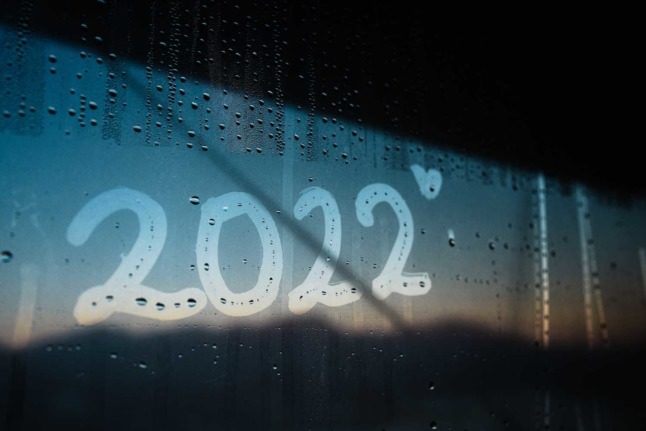The disability insurance reform will enter into force on January 1st
Under the new system, disability pensions will be allocated on a linear basis for beneficiaries with a disability rate between 40 and 69 percent. The aim is to encourage recipients of a disability pension to work as much as is possible.
The reform also aims to improve the chances of young people and people with mental health problems, with a view to reintegrating into the labour market.
More detail, along with more information about areas to be reformed can be found in German and French.
Croatians can work in Switzerland under same right as other EU/EFTA nationals
From January 1st, citizens of Croatia will be permitted to work in Switzerland under the same rights as the rest of the EU/EFTA nationals.
Previously, under a law approved by the Swiss authorities, Croatians were permitted access to Switzerland’s labour market while being subject to transitional provisions, such as specific quotas.
READ MORE: Swiss to allow ‘complete’ free movement of people from Croatia
Gender identity to be easier to adjust in official documents
An amendment to the Civil Code which will come into force on January 1st will allow people with a trans identity to make appropriate changes in the civil status register more easily, by means of a simple declaration.
Swiss vehicles will be equipped with black boxes from July
Black boxes will be mandatory for new types of passenger cars and vans from July 1st, after the entry into force of a UN regulation.
The new regulation aims to allow significant progress in gathering data on road accidents and vehicle safety, according to the UN Economic Commission for Europe.
Thanks to the new device, investigators will be able to reconstruct an accident from five seconds before and until the vehicle is immobilised.
Ch-Ch-Ch-Ch-Ch-Changes: Clavaleyres moves cantons
As of January 1st, 2022, the Bernese region of Clavaleyres will join neighbouring Fribourg.
The region has around 50 inhabitants and according to Switzerland’s Der Bund “is finding it increasingly difficult to carry out the tasks of a community from fire services to social services to school lessons.”
While some cantonal changes can be controversial – Moutier, anyone? – this time around the change as largely flown under the radar.
Bern notice: Moutier wants to change cantons – but why?
End of ‘geo-blocking’ of Swiss customers on foreign sites
Swiss internet users sometimes try to buy goods abroad for less money than what comparable items cost in Switzerland. However, certain platforms automatically redirect customers to a Swiss site, where prices are higher.
The practice of automatically redirecting customers to a Swiss platform, will no longer be tolerated from January 2022, according to NZZ am Sonntag.
A legislative change will repeal this practice, but foreign companies may refuse to deliver cheaper goods to Switzerland, NZZ said.
Covid rules and Covid certificate (maybe, but probably later than we all hope)
Switzerland’s Covid measures and Covid certificate are officially set to expire on January 24th, 2022.
If this is the case, we can expect a return to the grand old days of 2019, where wearing a mask was weird and kiss hellos were not.
In reality, and particularly given the concerning Covid situation across Switzerland, it is likely that the measures are extended beyond January and well into the new year.
We have no inside scoop from the Swiss government, but using 2021 as an example, there’s a good chance that the measures will be relaxed in the spring when the weather warms up.
As has previously been illustrated by the Swiss government however, the major metric this time around in deciding whether to remove measures will not be infection rates but will instead be hospitalisation rates.
Until then, stay tuned to The Local for up to date information on Switzerland’s current and upcoming Covid measures.
EXPLAINED: What are Switzerland’s new Covid measures?
Fuel prices: More expensive petrol
Despite Switzerland’s rejection of a referendum to curb CO2 emissions, petrol prices still look set to climb in 2022.
Currently, everyone who fills their tank pays 1.5 cents per litre for climate protection initiatives. This is set to increase to five cents per litre at the end of 2021 due to the expiration of a subsidy for motorists.
As at late December, this looks set to come into effect at the start of 2022. While the right-wing Swiss people’s party have indicated an opposition to the measure, it has won more widespread favour among the Swiss government.
Unless a change is passed soon, Swiss residents can expect to pay a little more at the pump in 2022.
READ MORE: Where in Switzerland can you find the cheapest fuel?
We all need to be nicer to fish and lobsters
From January 1st, Switzerland’s Federal Food Safety and Veterinary Office (FSVO) will introduce new rules on how fish and crustaceans can be slaughtered.
At present, there are no regulations for how this needs to take place, meaning companies can slaughter fish and other sea creatures in any way they like.
Now there will be a range of minimum standards which need to be complied with.
…and chickens
There will also be an expansion of animal welfare laws regarding the commercial slaughter of poultry, i.e. chickens and turkeys.
The gasses used to stun the birds must be kinder and gentler in the future, with CO2 – the gas currently used – to be phased out.
Same sex marriage
Same-sex couples will be permitted to get married in Switzerland on July 1st, 2022, nine months after a historic referendum.
Nine months after the vote, the “marriage for all” law will enter into force as of July 1st, 2022, the Federal Council announced.
From this date on, gay couples will be able to marry, though the preparatory procedure for marriage can be started before this date.
Same-sex couples will also be able to convert their registered partnership into marriage: a simple joint declaration to a civil status officer will suffice to convert a current partnership.
EXPLAINED: Same-sex couples can marry from July 1st in Switzerland

Basel to put in place minimum wage
In June 2021, Basel City voted via referendum to put in place a minimum wage. While unions wanted a standard of CHF23 – which would equal Geneva’s standard as the highest in the world – voters accepted a government counter proposal of CHF21.
The standard is expected to be implemented in early 2022, although an exact date is as yet unclear.
Five Swiss cantons now have a minimum standard, although Basel City is the first German speaking canton to have such a rule in place.
Reader question: Which Swiss canton has the highest minimum wage?
No more subsidies for gluten free kids
From January 2022, Switzerland will remove a subsidy payment made to children who cannot eat gluten.
The payments are made to families with children who have celiac disease, which means they cannot consume foods with gluten such as pasta and bread.
The government has come under fire for the removal, with critics saying it places undue pressure on poorer families with children.
READ MORE: Switzerland under fire for cutting payments for gluten free children
New, expanded Swiss Pass
Switzerland’s Swiss Pass, the card through which the country’s public transport travel cards work, is set to be improved at some point in 2022.
Switzerland’s Federal Railways (SBB) is currently looking at ways to integrate various new services into the Pass, which has come under fire for being expensive and impractical.
The specifics of the improvements have not yet been outlined and are presumably still under development. Stay tuned to The Local for an update on how the new, improved Swiss Pass is set to work.
READ MORE: EXPLAINED: How to find cheap train tickets in Switzerland
Postage costs
Sending letters will get a tad more expensive in Switzerland as of 2022, with Swiss Post increasing prices by up to ten cents per letter. The last time prices were increased was in 2004, 18 years ago.
Prices for sending A-Mail letters will increase by ten cents per letter, while B-Mail will go up by five cents.
Prices for sending packages will remain the same, Swiss Post has promised.
Swiss Post say the increases are necessary due to the decline in the amount of post being sent in Switzerland, which is roughly half of that being sent when prices were last increased just under 20 years ago.
READ MORE: Swiss Post to increase mail prices for first time in 18 years
Postboxes to cost 120 CHF
Swiss Post are also increasing the cost of Post Office boxes.
Anyone who wants a PO box will now need to pay 120CHF per year.
This is a significant increase as the boxes are currently free.
Electricity prices
The cost of electricity will increase slightly for households in 2022, according the Federal Electricity Commission ElCom.
A typical household will pay 21.2 cents per kilowatt hour (ct./kWh) next year, which corresponds to an increase of 0.7 ct / kWh, or 3 percent.
The new cost consists of the tariffs for the use of the network, the tariffs for energy, the charges payable to public authorities, and the surcharge levied on the grid.
READ MORE: How can you save on your household energy bills in Switzerland?
Electronic vignettes to be available for the first time
Just kidding. For the third consecutive year, electronic vignettes have been delayed to the following year, for reasons as yet unclear.
EXPLAINED: Everything you need to know about Switzerland’s vignettes
Any changes you want to know more about or is there anything we’ve missed? Get in touch at [email protected].



 Please whitelist us to continue reading.
Please whitelist us to continue reading.
Member comments